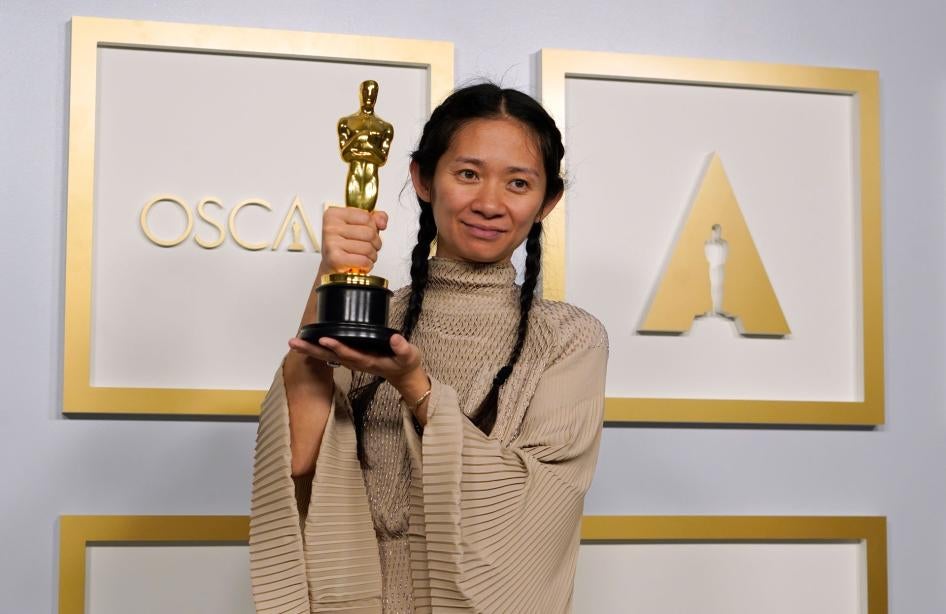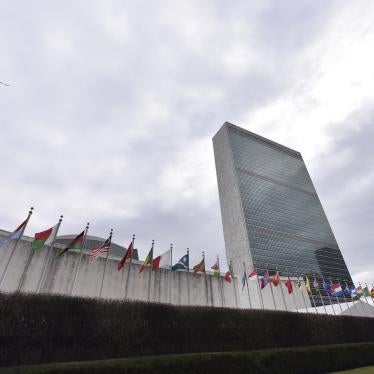“Renzhichu xinbenshan” or “people at birth are inherently good.” Beijing-born Chloe Zhao invoked this Chinese proverb in her acceptance speech at the Academy Awards last night as she became the first woman of color to win an Oscar for best director for her film Nomadland. It was a moving speech, and the proverb would be familiar to any Chinese ear.
You would think this was a celebratory moment in the Chinese government’s campaign for “soft power,” in which it lauds international recognition of Chinese citizens and people of Chinese descent. But few people in China got to know about this historic moment. Chinese social media platforms removed news about Zhao and her film’s Oscar wins. Authorities went to extra lengths to block a virtual private network service that some netizens used to circumvent China’s Great Firewall to livestream the award ceremony.
When Zhao became the first Asian woman to win the Golden Globe for directing in March, news about Nomadland, which portrays itinerant lives in the American West, was initially celebrated. But after a nationalistic backlash erupted online over a comment Zhao made nearly a decade ago, it was scrubbed from the Chinese internet. In a 2013 interview, she said China is “a place where there are lies everywhere.”
Zhao had a point. The ruling Chinese Communist Party (CCP) has spent 70 years censoring much more than Oscar ceremonies. It routinely jails its critics and fills the internet, newspapers, and textbooks with propaganda; there is no independent media.
In order to exert greater cultural influence on the international stage, the CCP over a decade ago embarked on a top-down campaign to promote its “soft power,” establishing overseas foreign-language media outlets to tell “China’s story” and Confucius institutes to teach Chinese language and culture.
When celebrated Chinese writers, artists, and athletes decide not to follow the CCP’s script of “China’s story” but instead speak their minds on the global stage, they are often censored. Nobel Literature laureate Gao Xinjian, artist Ai Weiwei, and soccer player Hao Haidong are among the best known. And now Chloe Zhao.
If the government wants to make China more attractive to a global audience, it has a better option: let people freely make films and art, write books, and express their opinions. Then Beijing could revel in their exceptional work, not try to hide it.
|
Dispatches
And the Oscar for Censorship Goes to Xi Jinping
Beijing-born Director Chloe Zhao’s Historic Win Erased in China
Your tax deductible gift can help stop human rights violations and save lives around the world.
Region / Country
Most Viewed
-
January 16, 2026
Iran: Growing Evidence of Countrywide Massacres

-
November 25, 2019
A Dirty Investment

-
February 4, 2026
Iran: Human Rights Situation Spirals Deeper into Crisis

-
September 9, 2018
“Eradicating Ideological Viruses”

-
September 21, 2022
“It’s As If They’re Poisoning Us”





